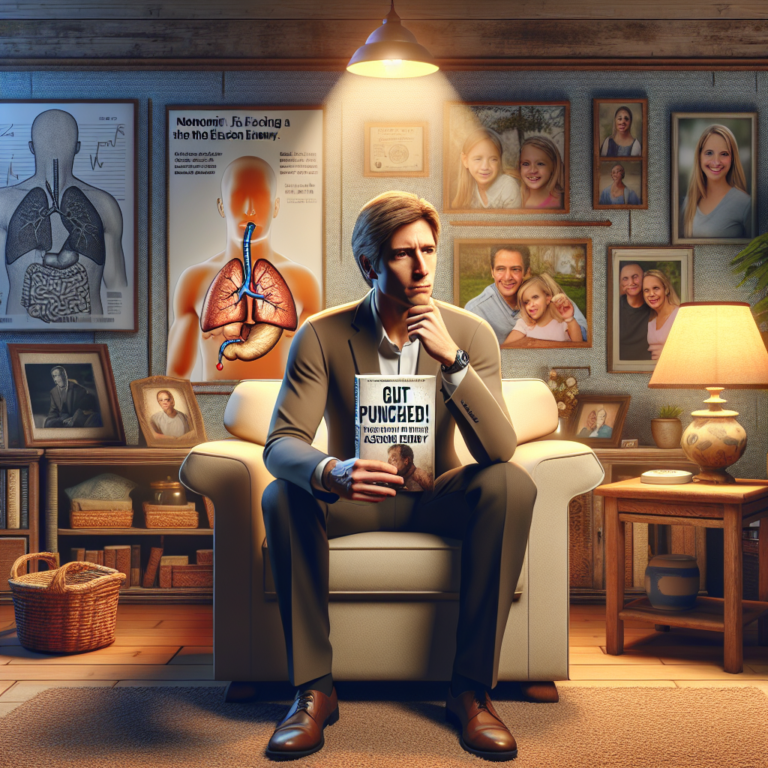Unlocking Health: How Comprehensive Family History and Genetic Testing Enable Early Disease Detection

Navigating Pancreatic Cancer: A Survivor’s Journey
In the realm of health awareness, understanding family medical history can be a game-changer. One remarkable story highlights how proactive measures and early detection can significantly alter outcomes in the fight against pancreatic cancer. This is the inspiring account of a survivor whose journey emphasizes the importance of genetic testing and timely medical intervention.
Family Legacy of Cancer
The tale begins with a family deeply affected by cancer. The author’s father battled five types of cancer, ultimately living to 80 despite his struggles. Tragically, the author’s grandfather succumbed to pancreatic cancer long before they could meet. As medical advancements made genetic testing available, the author’s father discovered he carried both BRCA1 and BRCA2 mutations. Following in his footsteps, the author too underwent testing, confirming the presence of these mutations.
Timely Detection: A Life-Saving MRI
The journey took a pivotal turn when the author consulted Dr. Ravi Sharaf at Weill Cornell Medicine in New York City. Despite feeling healthy, the author was urged to undergo an MRI due to their genetic predisposition. The scan, conducted in September 2021, revealed a small tumor located at the tail of the pancreas—an alarming yet fortuitous discovery that allowed for swift action.
Early Intervention: Surgical Success
Upon learning of the diagnosis, the author met with Dr. Michael Lieberman, who promptly scheduled a distal pancreatectomy. This early-stage Ia tumor was removed before it could spread, a crucial step in the treatment process. In a twist of fate, while awaiting surgery, a dermatologist identified a mole that turned out to be melanoma—a common concern for those with BRCA mutations. Thankfully, it was also diagnosed at stage Ia, and Dr. Lieberman managed to excise it during the same surgical procedure.
Chemotherapy: Tailored Treatment
Post-surgery, the author was referred to Dr. Allyson Ocean, who recommended a six-month chemotherapy regimen. Given the BRCA2 mutation, they opted for a specific treatment protocol involving cisplatin and gemcitabine, which is known for being more tolerable than other options like FOLFOX. Although the author experienced fatigue and mild side effects, the treatment was manageable and effective.
Participating in a Clinical Trial
After completing chemotherapy, the author took part in a year-long clinical trial with Dr. Kim A. Reiss at the Basser Center for BRCA at Penn Medicine’s Abramson Cancer Center. While some side effects emerged, including sunburn and temporary neuropathy, they were short-lived and manageable.
A Bright Future Ahead
Today, the author proudly celebrates over three years as a survivor of pancreatic cancer. Residing in New York City with their wife and two daughters, they continue to lead an active lifestyle while practicing law. Committed to giving back, the author participates in fundraising efforts for the Pancreatic Cancer Action Network (PanCAN) and recently joined the Board of Directors for Let’s Win Pancreatic Cancer, amplifying their advocacy for patients facing similar battles.
Final Thoughts: The Importance of Family History
This survivor’s journey serves as a powerful reminder: knowing your family medical history and pursuing regular check-ups and genetic testing can be life-saving. Don’t underestimate the impact of proactive health measures—they might just change your life for the better.
For more insights into the significance of family medical history and genetic mutations, check out our resource on family health history.






